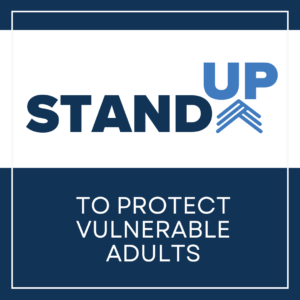Around the time #ChurchToo was trending on social media, I moderated a panel about sexual abuse against women. The venue was the Evangelical Press Association’s national meeting—so, an audience largely comprised of journalists. Our panelists included an expert in data about causes of domestic violence, a journalist with Christianity Today who had been in the thick of the stories about high-profile Christians abusing power, and a former pastor who was the violence prevention coordinator for a campus in the California university system.
We quickly ran out of time as unfortunately, we had far too much content to cover. And we pray for the day when our work will become obsolete. But until that day, here are some takeaways—conclusions which have changed little since that day in 2018:
The Abuse Problem
First of all, many people remain unaware of the prevalence of abuse. Abuse of women is not just a women’s issue. It is a human issue. Abuse is not bound by gender, ethnicity, religion, or socioeconomic status. Every 68 seconds, an American is sexually assaulted.[1]
While we may agree that sexual assault is wrong, some have suggested that a key problem with sexual harassment accusations is that the lines are gray, and people have misunderstood simple flirting—making a big deal out of nothing. But Barna research contradicts such thinking. People, it turns out, are pretty clear about what constitutes crossing the line. Americans say that sexual harassment is most often about being touched or groped (women: 96%, men: 86%) or being forced to do something sexual (women: 91%, men: 83%). The list encompasses more than these extremes, however; it also includes someone touching themselves intentionally or masturbating in front of an unwilling witness (women: 89%, men: 76%); making sexual comments about someone’s looks or body (women: 86%, men: 70%); and sharing intimate photos or videos of someone without permission (women: 85%, men: 71%).
The Confirmation-Bias Problem
Second, Evangelicals tend to be initially more skeptical of media reports, even well-documented ones, than members of the population at large—even when such reports come accompanied by significant evidence and documentation. It appears that we are more likely to go with the US legal system’s “innocent until proven guilty” rule of thumb than the Bible’s “at the mouth of three witnesses let a thing be established” guideline (Deut 19:15; Matt 18:16; 2 Cor 13:1; 1 Tim 5:19). This is even more of an issue when allegations are brought against beloved leaders who have impacted the lives of hundreds, if not thousands, as in the case of Ravi Zacharias or Bill Hybels.
When #MeToo initially went viral, many Christians assumed the church was ahead of the culture in terms of morality. But we soon learned that it merely took longer for the church stories to break. #ChurchToo followed with many stories about abuses of power beneath the steeple. This means: often we believe the high-profile person who says “I didn’t do it” over the less powerful person saying, “You did this. And I have nothing to gain and everything to lose by bringing it up.” Many more people get abused than falsely accused. So while we must take both seriously, we must also recognize our tendency to disbelieve the powerless.
Christians who provide well-researched, investigated reports on allegations of sexual harassment and abuse are doing holy work, bringing darkness to light. Often public accountability is the only way to keep powerful people honest. Even church boards, seeking to reduce negative publicity, are often complicit in cover-ups. Which brings us to the next problem:
The Response Problem
Christians committing abuse is bad enough. But perhaps the worst revelations of the past several years have been Christian organizations’ tendencies to protect abusers and blame victims in the name of protecting the reputation of Christ and his church.
In some cases of abuse, organizations may act out of ignorance and negligence. This is a poor excuse since Christians are to abide by reporting laws, seeking to do justice and love mercy. But in a remarkable number of cases of abuse, those who were entrusted to steward God’s most precious resources refused to report, chose to cover it up, and in some cases even shamed the victim into silence and drove them out of the organization. This lack of compassion has no place in Christian organizations, and deserves to be called out and confronted.
To be clear, if someone’s behavior is illegal (e.g., rape, child sexual abuse material), the church has an obligation to more than deal with it internally; we must report it to the police. So leaders must make ourselves familiar with our states’ laws. Many mental-health professionals believe that the power differential is so significant in relationships such as minister with parishioner, physician with patient, and counselor with client that there is no such thing as “consent” when power is abused in such relationships. That being the case, words such as “affair” have no room in the vocabulary for describing such situations. David did not have an affair with Bathsheba. Pastors don’t have affairs with parishioners. (For an explanation of why David’s actions should be considered rape, see Old Testament scholar Carmen Joy Imes’ Blame David, Not Bathsheba. The Prophet Nathan Did and Pastor Kyle Worley’s Why It’s Easier to Accept David as a Murdered than a Rapist).
It is not enough to call for resignation when a leader has harmed a parishioner. And a verbal apology is not enough, either. Healing involves also making reparations such as taking full responsibility via rhetoric and paying for victims’ counseling. When Zacchaeus repented of theft, he did more than apologize. He even did more than return the money. He paid back his victims more than they had lost financially through his thievery (Luke 19:1-10).
In some cases of abuse, such as emotional or spiritual abuse, it is not always a criminal case. However, texts such as 1 Timothy 3:1–7 and Titus 1:5–9 make it clear that spiritual leaders are to be “above reproach” in their character. Such allegations of impropriety deserve investigation, and it is often helpful to enlist a third-party investigator to help uncover the truth. However, when calling for an independent investigation, we need to look for ways that even a so-called independent investigation can leave the investigation team beholden to the one(s) paying the bills. Such ties can create a conflict of interest—which can lead to accusations of cover-ups. So we must aim for fuller transparency and accountability (See Christianity Today’s We Fell Short in Protecting Our Employees for a good example of transparency).
When people confide in us their stories, we must avoid victim-blaming. We avoid such blame asking open-ended questions such as “What seemed the best course of action to you and why?” rather than “Why didn’t you call the police immediately?” Our questions can inflict more pain, so we must ask them wisely. When allegations are made, our goals are chiefly to demonstrate compassion toward the alleged victim and to seek justice for all.
Paul called on the Ephesians to expose the deeds of darkness (Eph. 5:11). If we know of abuse happening—whether it’s a David with a Bathsheba or a Potiphar’s wife with a Joseph—we must do something. We must tell someone! The church should be the best place in the world for victims and victimizers alike to encounter mercy, justice, and restoration.





